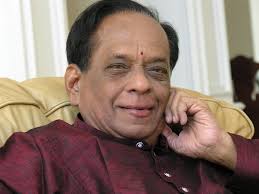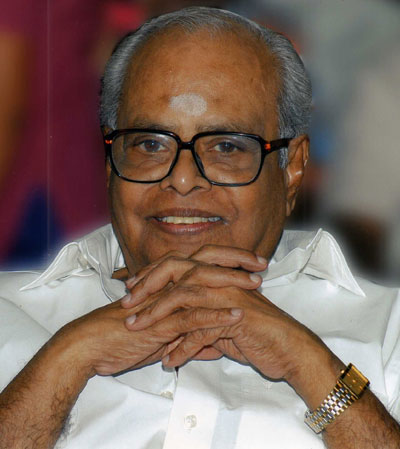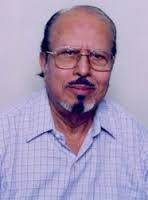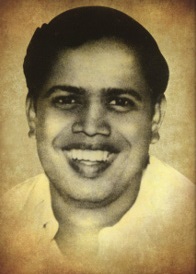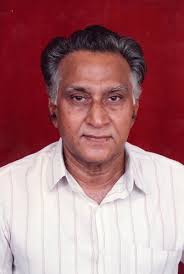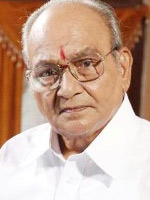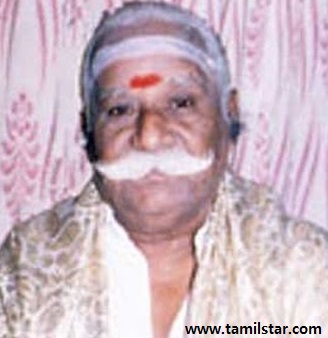
Showing all artists born in 1930
M. Balamuralikrishna
Mangalampalli Balamurali Krishna (6 July 1930 – 22 November 2016) was an Indian Carnatic vocalist, musician, multi-instrumentalist, playback singer, composer, and character actor. He had garnered two National Film Awards (1976-1987), the Sangeet Natak Akademi Award in 1975, the Padma Vibhushan, India's second-highest civilian honor in 1991, for his contribution towards arts, the Mahatma Gandhi Silver Medal from UNESCO in 1995, the Chevalier of the Ordre des Arts et des Lettres by the French Government in 2005, the Sangeetha Kalanidhi, and the Sangeetha Kalasikhamani to name a few.
Balamuralikrishna started his career at the age of six. During a career spanning 70+ years, he presented around 5,000 concerts worldwide. He accompanied Pandit Bhimsen Joshi, and gave jugalbandi concerts with Pandit Hariprasad Chaurasia and Kishori Amonkar, among ... See full bio
Balamuralikrishna started his career at the age of six. During a career spanning 70+ years, he presented around 5,000 concerts worldwide. He accompanied Pandit Bhimsen Joshi, and gave jugalbandi concerts with Pandit Hariprasad Chaurasia and Kishori Amonkar, among ... See full bio
Known For:
K. Balachander
K. Balachander (born July 9, 1930) is an Indian film director, Cinema scriptwriter and producer. Balachander is known for his distinct film-making style. His films analyse unusual or complicated interpersonal relationships and social themes. He has directed nearly 80 films and has worked in 100 films either as director or writer. In his career, he has introduced hundreds of actors and technicians in Tamil Cinema including Kamal Hassan, Rajinikanth, Prakash Raj and Vivek. He also owns a production house named Kavithalaya Productions. Besides Tamil cinema, he has directed films in Telugu, Hindi and Kannada languages and occasionally worked as an actor and in television as well.
Balachander has won numerous National Film Awards and 13 Filmfare Awards South. He was honored with the Padma Shri, India's fourth highest civilian award in 1987, and is also a r... See full bio
Balachander has won numerous National Film Awards and 13 Filmfare Awards South. He was honored with the Padma Shri, India's fourth highest civilian award in 1987, and is also a r... See full bio
Known For:
Uttama Villain
, Rettaichuzhi
, Rettaisuzhi
, Paarthale Paravasam
, Kalki
, Duet
, Jathi Malli
, Vaaname Ellai
, Azhagan
, Pudhu Pudhu Arthangal
, Unnal Mudiyum Thambi
, Manathil Uruthi Vendum
, Punnagai Mannan
, Sindhu Bhairavi
, Varumayin Niram Sivappu
, Ninaithale Inikkum
, Avargal
, Moondru Mudichu
, Apoorva Raagangal
A. C. Tirulokchandar
A. C. Tirulokachandar (11 June 1930 – 15 June 2016) was an Indian film director and screenwriter who worked mainly in Tamil films from the 1960s to 1988. He also directed a few films in Hindi and Telugu. His 1969 Tamil film Deiva Magan was the first South Indian film to be submitted by India in contest for the Academy Award for Best Foreign Language Film.
During the making of the film Manthiri Kumari in 1950, A.C.Trilogchander was working as a junior assistant on the sets and during the shooting of this film became a close friend of M.G.Ramachandran. Producer A.V. Meiyappan noticed his talent and gave A.C.Trilochander his break as the director in 1962 film Veerathirumagan. With the success of his debut film, he got one more film to direct under AVM banner which was bilingual made simultaneously as Main Bhi Ladki Hoon in Hindi and... See full bio
During the making of the film Manthiri Kumari in 1950, A.C.Trilogchander was working as a junior assistant on the sets and during the shooting of this film became a close friend of M.G.Ramachandran. Producer A.V. Meiyappan noticed his talent and gave A.C.Trilochander his break as the director in 1962 film Veerathirumagan. With the success of his debut film, he got one more film to direct under AVM banner which was bilingual made simultaneously as Main Bhi Ladki Hoon in Hindi and... See full bio
Known For:
Pilot Premnath
Kalyanasundaranar
Makkal Kavignar Pattukkottai Kalyanasundaram (April 13, 1930 - October 8, 1959) is a well-known poet, lyricist. He is the most popular lyricist in 1950's before Kannadasan fame . He had penned some wonderful philosophy-tinged, upbeat lyrics to MGR’s successful movies.
He was born on April 13, 1930. His father Arunachalam Pillai was also a Tamil scholar and poet. PKS was born to an ordinary farming family at Senkapaduthan Kadu village in Pattukottai town of Thanjavur district in Tamil Nadu. His parents were Arunasalam Pillai (a folk poet) and Visalachi Amma. He was the second son to this couple. Eldest was Kanapathisundaram. Another sibling was a sister Vethambal. PKS never went to school, but had an in-born talent for poetry. He married Kavravambal in 1957, and had a baby son Kumaravel was born in 1959.
He has worked ... See full bio
He was born on April 13, 1930. His father Arunachalam Pillai was also a Tamil scholar and poet. PKS was born to an ordinary farming family at Senkapaduthan Kadu village in Pattukottai town of Thanjavur district in Tamil Nadu. His parents were Arunasalam Pillai (a folk poet) and Visalachi Amma. He was the second son to this couple. Eldest was Kanapathisundaram. Another sibling was a sister Vethambal. PKS never went to school, but had an in-born talent for poetry. He married Kavravambal in 1957, and had a baby son Kumaravel was born in 1959.
He has worked ... See full bio
Known For:
Mannava Balayya
Mannava Balaiah (or Balayya) is an actor, writer, director and producer in Telugu cinema.He acted in 300 films.
He was born at Chavupadu, Amaravathi mandalam, Guntur district to Mannava Guravaiah Chowdary and Annapurnamma. He studied Engineering B.E. (mechanical) in Guindy Engineering College, Chennai Inspired by the drama during his college days, Balaiah ventured into movies with guidance from Tapi Chanakya.
He made his debut as an actor with Ethuku Pai Ethu - a social film directed by Tapi Chanakya and made by Sarathi Studios. Films such as Parvati Kalyanam, Bhagyadevata, Kumkuma Rekha established him as an actor. ANR played Narada role in Parvati Kalyanam. There was yet another film they acted together, after a while, Chenchu Lakshmi film with ANR and Anjali in lead roles and directed by B.A.Subba Rao for his own banner, ... See full bio
He was born at Chavupadu, Amaravathi mandalam, Guntur district to Mannava Guravaiah Chowdary and Annapurnamma. He studied Engineering B.E. (mechanical) in Guindy Engineering College, Chennai Inspired by the drama during his college days, Balaiah ventured into movies with guidance from Tapi Chanakya.
He made his debut as an actor with Ethuku Pai Ethu - a social film directed by Tapi Chanakya and made by Sarathi Studios. Films such as Parvati Kalyanam, Bhagyadevata, Kumkuma Rekha established him as an actor. ANR played Narada role in Parvati Kalyanam. There was yet another film they acted together, after a while, Chenchu Lakshmi film with ANR and Anjali in lead roles and directed by B.A.Subba Rao for his own banner, ... See full bio
Known For:
Sri Rama Rajyam
Kasinathuni Viswanath
Kasinathuni Viswanath is an Indian film, sound designer turned director and actor known for his works in Telugu Cinema. He is the recipient of five National Film Awards, five Nandi Awards, ten Filmfare Awards South, and a Bollywood Filmfare Award. Viswanath's Hindi films include Sargam, Kaamchor, Sanjog, Jaag Utha Insan, Eeshwar, Sur Sangam, Shubh Kaamna, Sangeet and Dhanwaan.
Viswanath's classical films Sankarabharanam (1979) and Sagara Sangamam (1983) were included among CNN-IBN's list of hundred greatest Indian films of all time.His directorial works Sankarabharanam and Saptapadi, have garnered the National Film Award for Best Popular Film Providing Wholesome Entertainment and Best Feature Film on National Integration, respectively.
Sankarabharanam, has won the Prize of the Public at the Besancon Film Festival of France in ... See full bio
Viswanath's classical films Sankarabharanam (1979) and Sagara Sangamam (1983) were included among CNN-IBN's list of hundred greatest Indian films of all time.His directorial works Sankarabharanam and Saptapadi, have garnered the National Film Award for Best Popular Film Providing Wholesome Entertainment and Best Feature Film on National Integration, respectively.
Sankarabharanam, has won the Prize of the Public at the Besancon Film Festival of France in ... See full bio
Known For:
Kadhalin Pon Veedhiyil
, Uttama Villain
, Rajapattai
, Durai
, Pudhiya Geethai
, Bagavathi
Meesai Murugesan
Meesai Murugesan was a veteran actor and musician who appeared in Tamil-language films. He starred in more than 100 films and has done supporting roles in various films.
He started his career by playing the 'Kottankuchi' (coconut shell), alongside great musicians like K. P. Sundarambal, M. K. T. Bhagavathar, T. M. Soundararajan and Seerkazhi Govindarajan. He was popular for creating shrill sound effects in Nenjam Marappathillai and footfall of the horse in "Rajavin Paarvai Raniyin Pakkam" song in MGR-Saroja Devi's Anbe Vaa. He has played instruments for music directors like M. S. Viswanathan, Ilayaraja and Kunnakudi Vaidyanathan.
He was a carnatic artist and had learned to play over 25 instruments. He also ran a one-man band "Apoorva Thalavaithiyangal" and held several concerts across the world including Europe, Canada... See full bio
He started his career by playing the 'Kottankuchi' (coconut shell), alongside great musicians like K. P. Sundarambal, M. K. T. Bhagavathar, T. M. Soundararajan and Seerkazhi Govindarajan. He was popular for creating shrill sound effects in Nenjam Marappathillai and footfall of the horse in "Rajavin Paarvai Raniyin Pakkam" song in MGR-Saroja Devi's Anbe Vaa. He has played instruments for music directors like M. S. Viswanathan, Ilayaraja and Kunnakudi Vaidyanathan.
He was a carnatic artist and had learned to play over 25 instruments. He also ran a one-man band "Apoorva Thalavaithiyangal" and held several concerts across the world including Europe, Canada... See full bio
Known For:
Pirivom Santhippom
, Gemini
, Poove Unakkaga
, Puthiya Aatchi
, Amaidhi Padai
, Ennarukil Nee Irunthal
, Unnal Mudiyum Thambi
, Aan Paavam

